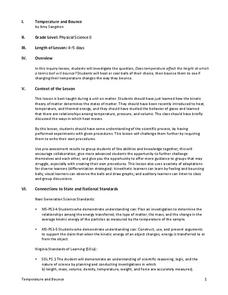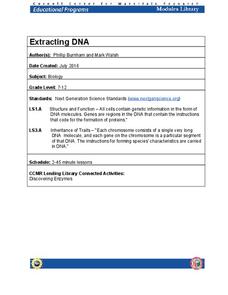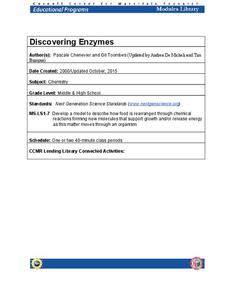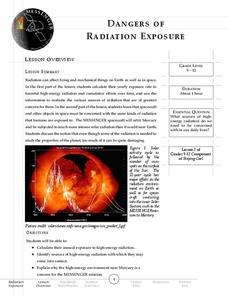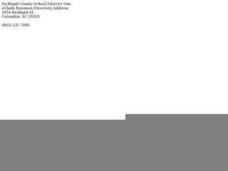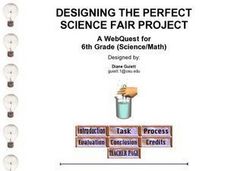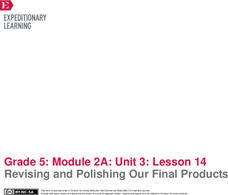National Science Teachers Association
Paper Car Crash Design
High school physical scientists collide with motion. They work in pairs to design a paper car that will protect a raw egg during a head-on collision. Measurements of distance traveled, time of run, vehicle specs, and photo gate flags are...
STEM for Teachers
Temperature and Bounce
Take part in a fun experiment and hold an impromptu bouncing contest with your class. Young scientists heat and cool balls before bouncing them to determine whether temperature changes affect how they bounce. The set of STEM lesson plans...
Chicago Botanic Garden
Personal Choices and the Planet
The last activity in the series of four has individuals determine steps they can take to reduce their carbon footprints and then analyze their schools' recycling programs. Through a sustainability audit, they identify how and where their...
Channel Islands Film
Natural Resources, and Human Uses of Plants and Animals
As part of their study of the restoration projects on Santa Cruz Island, class members demonstrate their understanding of the connections among plant life, animals, and the actions of humans by crafting a model that reveals these...
Cornell University
Extracting DNA
Uncover the basics of DNA structure through exploration activities. Collaborative groups build DNA models and recreate the process of replication. Then, using plant cells such as peas or strawberries, they extract a DNA sample.
Cornell University
Discovering Enzymes
Explore the function of enzymes through a series of lab investigations. Learners use household enzymes such as hydrogen peroxide to model the role of enzymes. The enzymes break down proteins with and without a catalyst.
Cornell University
The Making of Macromolecules
Compare and contrast macromolecules made from the same elements. Young scholars learn how the structure of a molecule has as much influence on a compound as the elements in the molecule. They experiment with molecular model kits to...
Cornell University
Sound Off!
Time to witness the effects of sound. Learners analyze different materials to determine their abilities to absorb sound waves. They use free software to monitor the amplitude of the waves to verify results.
Teach Engineering
Designing a Winning Guest Village in the Saguaro National Park
Don't desert a resource on the desert! Scholars work in groups to build on their ideas from the previous lesson to design a sustainable guest village in the Saguaro National Park. Each group produces a PowerPoint presentation to share...
Chicago Botanic Garden
Causes and Effects of Climate Change
It's time for your class to literally show what they know! Pupils illustrate what they learned about the causes and effects of climate change by filling out a graphic organizer to complete the 5-part series of lessons. They discuss them...
Curated OER
Nuclear Chemistry Project
Radiation has numerous real-world applications, some of which are relatively safe while others can be extremely hazardous. In this nuclear chemistry project, young scientists choose a practical use of nuclear reactions to research in...
Messenger Education
Exploring Exploring
The reason people first began trading was because of their desires for objects other societies possessed. In the activity, classes discuss why exploration has been a common thread in all societies and where these desires have taken...
Messenger Education
Dangers of Radiation Exposure
Gamma radiation, which is harmful, is useful in treating cancers. In the second lesson in a series of four, young scientists take surveys and calculate their yearly exposure to ionizing radiation. Then they read about how harmful their...
Scholastic
Final Project: The Earth, Inside Earth
Follow in Jules Verne's footsteps and take a journey to the center of the earth! Middle schoolers work together to design a trip inside the earth using their knowledge from the previous lessons in the unit.
NASA
Parachute Design
Bring the science of space exploration to the classroom. Young learners explore the mechanics of the parachute-landing mechanisms on the Mars Rover. They design and build their own parachute models and test their ability to land a probe...
Curated OER
What Temperature Is It?
Students answer the question, What is temperature? In this temperature lesson, students use hot chocolate and ice cubes to measure temperature with a thermometer (Fahrenheit and Celsius). This lesson includes a student activity sheet,...
Curated OER
Properties of Minerals
Students research properties of minerals. In this science lesson, students search the web, create a folder, and store information on properties of minerals. There are many excellent worksheets and study guides embedded in this lesson,...
Curated OER
Concrete Research
Students explore concrete. In this physical science and computer research instructional activity, students work in groups to answer specific questions about concrete. Each group of students completes a different worksheet with a...
Fluence Learning
Writing an Opinion: Buddies that Bark or Purr-fect Pets?
Which animal is best for you—a dog or cat? Why? Engage third graders in an opinion writing assessment that prompts them to read facts about both pets, and then write and decide which pet is best for them.
Curated OER
Designing the Perfect Science Fair Project Webquest
Sixth graders examine the Scientific Method and define their topic of interest. Students familiarize themselves with how to utilize their resources and create note cards. Students create their written report and display of their...
Curated OER
Game Rubric
In this game rubric activity, students have the opportunity to evaluate a group project based on content, participation, group presentation, and construction.
Ontario
Computer Hardware —Computer Studies
What kind of components are needed for a computer? Through a differentiated lesson, individuals learn about six hardware computer components. They conduct research to determine the range of options for the components. Class members then...
EngageNY
Revision and Illustration: Strengthening the Writing in my Rainforest Field Journal and Adding a Labeled Drawing
Let me draw you a picture. Scholars read a quote from Roger Tory Peterson and discuss his views on drawings. They then create their own drawings of an ant or butterfly to add to their science journals.
EngageNY
Revising and Polishing Our Final Products
One, two, three go! Scholars work independently to finalize the three components of their final task. They complete a science journal entry, scientific text box, and scientific drawing. While working, learners sign up for an appointment...



